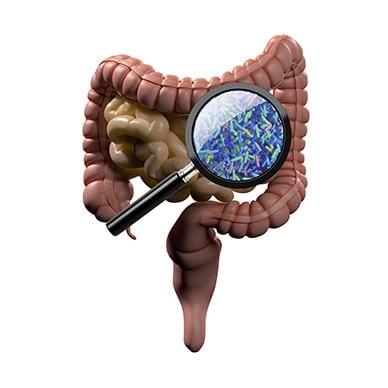Previous research has demonstrated that deficient levels of vitamin D may increase the risk of developing diabetes. The most recent study on the subject, which was published in the scientific journal PLOS ONE, offers support for this significant connection between vitamin D and diabetes.
Vitamin D Deficiency Poses a Greater Risk of Developing Diabetes
In a recent study carried out by a team of researchers from the University of California San Diego and Seoul National University involved 903 healthy adults with an average age of 74 who had no indications of either prediabetes or diabetes. Researchers followed the participants for 10 years, measuring their levels of 25-hydroxyvitamin D, along with fasting plasma glucose and oral glucose levels.
 Among the participants, there were 47 new cases of Type 2 diabetes and 337 cases of prediabetes, which is when blood glucose levels are much higher than normal but not yet high enough to be considered Type 2 diabetes. Researchers noted the minimum healthy level of 25-hydroxyvitamin D as 30 nanograms per milliliter — 10 nanograms per milliliter above the level originally recommended in 2010 by the Institute of Medicine, which is now part of The National Academies, a health advisory group to the federal government.
Among the participants, there were 47 new cases of Type 2 diabetes and 337 cases of prediabetes, which is when blood glucose levels are much higher than normal but not yet high enough to be considered Type 2 diabetes. Researchers noted the minimum healthy level of 25-hydroxyvitamin D as 30 nanograms per milliliter — 10 nanograms per milliliter above the level originally recommended in 2010 by the Institute of Medicine, which is now part of The National Academies, a health advisory group to the federal government.
According to first author Sue Park, M.D. of Seoul National University College of Medicine in South Korea, “we found that participants with blood levels of 25-hydroxyvitamin D that were above 30 ng/ml had one-third of the risk of diabetes and those with levels above 50 ng/ml had one-fifth of the risk of developing diabetes.”
Co-author Dr. Cedric Garland, of the University of California San Diego, noted that those with 25-hydroxyvitamin D levels below 30 nanograms per milliliter were considered to be vitamin D deficient.
The researchers found that people with a deficiency were up to five times more likely to develop diabetes than people with levels above 50 nanograms per milliliter. According to Dr. Garland, people would have to supplement with 3,000 to 5,000 international units of vitamin D every day in order to reach the minimum of 30 nanograms per milliliter.
Dr. Garland, who has led previous investigations regarding the connection between vitamin D levels and various cancers, noted that this study builds upon previous epidemiological research that links vitamin D deficiency to a higher risk of developing diabetes, but he cautions that epidemiological studies are not necessarily proof of causality.
“Further research is needed on whether high 25-hydroxyvitamin D levels might prevent Type 2 diabetes or the transition from prediabetes to diabetes, but this paper and past research indicate there is a strong association,” Dr. Garland concluded.
Causes and Common Symptoms of a Vitamin D Deficiency
Most people are likely aware of vitamin D’s essential role in the body’s ability to absorb calcium, but vitamin D is also critical to the body’s immune, musculoskeletal and nervous systems. Not getting enough vitamin D has the potential to affect the entire body and can possibly lead to the onset of certain diseases and illnesses.
Vitamin D deficiencies are extremely common. An estimated 1 billion people globally have low levels of vitamin D in their blood and around 42 percent of adults in the US are deficient. Most people don’t even realize that they are deficient because the symptoms are generally so subtle that they may not be recognizable even if they are having significant impacts on their quality of life.
Common Causes of a Vitamin D Deficiency
 Vitamin D deficiency is becoming increasingly common. There are a number of different reasons that you may become deficient in vitamin D, such as:
Vitamin D deficiency is becoming increasingly common. There are a number of different reasons that you may become deficient in vitamin D, such as:
- not getting enough exposure to natural sunlight
- not consuming enough vitamin D through diet
- malabsorption problems that prevent absorbing enough vitamin D from food
- medicines that may interfere with the body’s ability to convert or absorb vitamin D
- a liver or kidney problem that prevents the body from properly converting vitamin D to its active form
Certain Risk Factors Increase Chances of Vitamin D Deficiency
There are certain risk factors that may affect whether or not a person is more likely to develop a vitamin D deficiency:
- Spending too much time indoors means that you’re not getting enough exposure to the sun’s beneficial ultraviolet-B (UVB) rays, which are necessary for the skin to convert cholesterol into vitamin D.
- Wearing high-SPF sunscreen has the same effect as staying indoors since you are decreasing your exposure to UVB rays.
- Living in a highly polluted area can also affect how much sun exposure you receive due to the air pollutants blocking out and absorbing sunlight.
- Having darker skin increases the risk of deficiency due to darker skin needing more sun exposure to absorb adequate amounts of vitamin D.
- Gut health may play a factor in deficiency, as disorders such as Crohn’s disease decrease the intestines’ ability to properly absorb nutrients such as vitamin D.
- Being overweight is a leading risk factor for deficiency due to how excess body fat affects the absorption of vitamin D.
- Chronic liver or kidney disease increases the risk of deficiency due to preventing the body from being able to convert vitamin D to its usable form.
- Age is another factor in deficiency. As we get older, our ability to absorb and convert UVB into vitamin D declines.
Potential Signs and Symptoms of a Vitamin D Deficiency
Many people who are vitamin D deficiency may not experience any symptoms or may go on for years before experiencing symptoms. The signs of a vitamin D deficiency are similar to the symptoms of a wide range of other illnesses, therefore, rather than self-diagnosing, it’s critically important to visit a physician to be tested for a vitamin D deficiency. Speak with your doctor if you experience any of the following:
- frequent sickness or infections
- a noticeably slower healing of wounds
- constant feelings of fatigue, even with adequate sleep
- bone loss, osteoporosis or frequent fractures
- a sudden loss of hair
- pain in the bones and back
- feelings of depression or malaise
 The team’s research echoes other findings that have connected noise levels to heart health. For example, high-decibel
The team’s research echoes other findings that have connected noise levels to heart health. For example, high-decibel  While some bacteria appear to cause autoimmune diseases, others have exactly the opposite effect. In another study, scientists noted that
While some bacteria appear to cause autoimmune diseases, others have exactly the opposite effect. In another study, scientists noted that  We’re all aware of how important a healthy diet is to maintaining weight, but more and more, the research suggests that when we eat may be more important than what or how much we consume. Data released by the
We’re all aware of how important a healthy diet is to maintaining weight, but more and more, the research suggests that when we eat may be more important than what or how much we consume. Data released by the  The Bdiet group needed considerably less insulin throughout the day, while the 6Mdiet group found they needed to increase their insulin usage. Reported feelings of hunger and cravings were decreased among the Bdiet participants but conversely increased in the 6Mdiet group.
The Bdiet group needed considerably less insulin throughout the day, while the 6Mdiet group found they needed to increase their insulin usage. Reported feelings of hunger and cravings were decreased among the Bdiet participants but conversely increased in the 6Mdiet group. In collaborative efforts between Tulane and Harvard universities, researchers evaluated the link between antibiotic usage and cause-specific risk of death. Previous studies have shown that antibiotics can cause significant changes in gut microbiota, the microorganisms that live in the digestive tract. Researchers hoped to investigate whether these microbiota change in a way that can increase a person’s risk of developing cancers, heart disease, or other serious illnesses.
In collaborative efforts between Tulane and Harvard universities, researchers evaluated the link between antibiotic usage and cause-specific risk of death. Previous studies have shown that antibiotics can cause significant changes in gut microbiota, the microorganisms that live in the digestive tract. Researchers hoped to investigate whether these microbiota change in a way that can increase a person’s risk of developing cancers, heart disease, or other serious illnesses. Along with these microbes, the human gut is home to millions of neurons that are embedded along the walls of the gastrointestinal tract, which communicate directly with our brain to control well-being. This “second brain,” the enteric nervous system, fires off of the same neurotransmitters, such as serotonin and dopamine, as our brain and is responsible for the majority of our immune function and mood balance.
Along with these microbes, the human gut is home to millions of neurons that are embedded along the walls of the gastrointestinal tract, which communicate directly with our brain to control well-being. This “second brain,” the enteric nervous system, fires off of the same neurotransmitters, such as serotonin and dopamine, as our brain and is responsible for the majority of our immune function and mood balance. Mounting evidence points to the fact that our weight may be tied to the people we surround ourselves with, but much of this supporting research was conducted within highly clinical settings or is based upon second-hand self-reporting. Seeking to conduct a more controlled trial in a real-world setting, researchers from the University of Connecticut, in partnership with Weight Watchers International, recently set out to study the viral nature of dieting among couples.
Mounting evidence points to the fact that our weight may be tied to the people we surround ourselves with, but much of this supporting research was conducted within highly clinical settings or is based upon second-hand self-reporting. Seeking to conduct a more controlled trial in a real-world setting, researchers from the University of Connecticut, in partnership with Weight Watchers International, recently set out to study the viral nature of dieting among couples. Many scientists agree that the obesity epidemic in America is largely
Many scientists agree that the obesity epidemic in America is largely